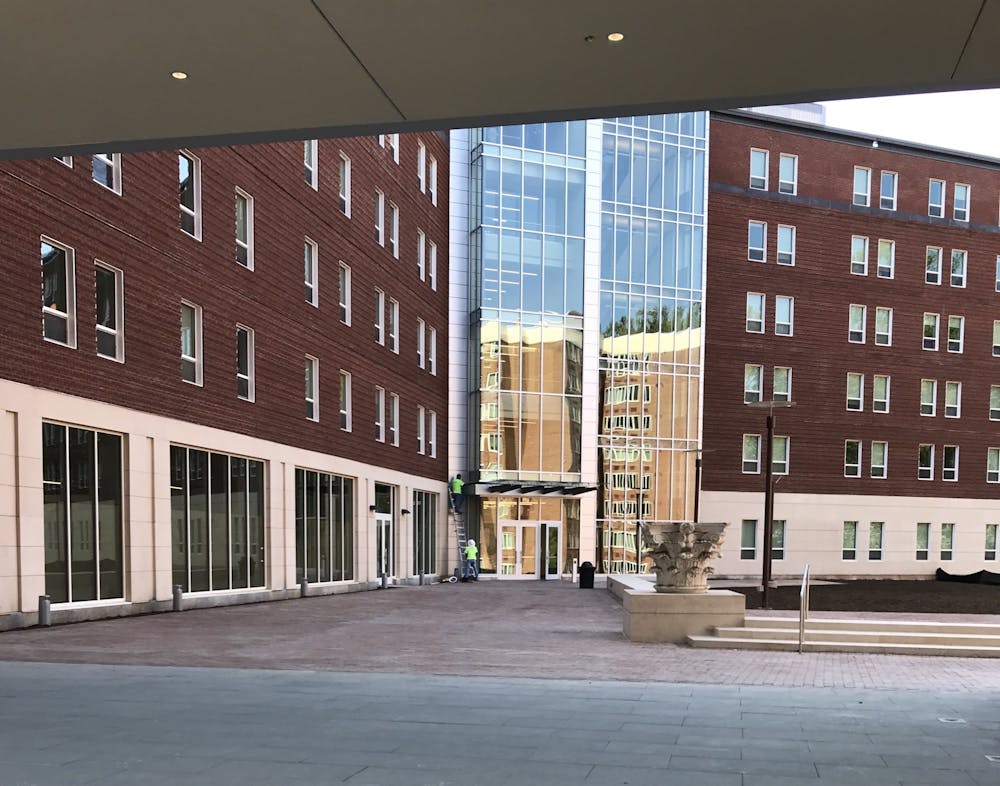The University Office of Housing and Residence Life has received 19 percent fewer applications for on-Grounds housing for the 2021-2022 academic year than it did at this point last year. However, the percentage of current on-Grounds residents who plan to return is higher than it was pre-pandemic. During the past few weeks, those who applied to live in on-Grounds housing for the next academic year have been in the process of selecting rooms.
According to Jessica Humphreys, director of information technology and assignments for Housing and Residence Life, the office understood that COVID-19 uncertainty might make some students apprehensive about future leasing options.
“This was expected given the many impacts of the pandemic, including the delayed housing application schedule requested by students, as well as the number of students who chose to study remotely,” Humphreys said.
Second-year Engineering student Charlie Hess chose to not continue living on-Grounds next year out of social considerations. 2016 data shows that while 43 percent of second-year students live on-Grounds, only 14 percent do so during their third-year. As a result, Hess, who currently lives on-Grounds, plans to move into an off-Grounds apartment complex next year.
“I chose to live off Grounds as opposed to remaining on Grounds because of the price incentive as well as proximity to peers within my grade level,” Hess said.
Whereas leasing for off-Grounds options is known to start as early as the fall semester, HRL’s process begins later this year, as deadlines to apply for on-Grounds housing were extended due to the pandemic. The earliest application deadline this year was Jan. 28 for residential colleges and language houses while the standard application deadline was not until Feb. 25. Students were allowed to choose rooms from early- to mid-March. The deadline to sign a housing agreement was March 19, and the deadline to cancel the agreement was March 21.
Some first-year students find on-Grounds housing options to be more convenient and more stable in the midst of pandemic uncertainty.
“I think as far as COVID goes with on-Grounds housing you are safer in the fact that you know your lease and housing contracts will align with what U.Va. decides to do with COVID,” first-year College student Reed Williams said. “It’s a safer option that’s not quite as binding as having a lease in Charlottesville.”
When the pandemic broke out last spring and students were forced to move out of on-Grounds housing, the University issued $18 million in rebates to affected students. Last fall, when residence hall move-in was pushed back two weeks, the University again issued refunds to on-Grounds residents for lost time in U.Va. housing.
First-year College student Morgan Hughes plans to live on Grounds next year because the off-Grounds leasing frenzy started too early for her liking.
“In October, when leases were starting to be signed, I just didn’t feel comfortable making that decision when I didn’t know what next year was gonna be like,” Hughes said.
The HRL process allows students to choose rooms in collaboration with roommates. According to HRL, students can elect one of their potential roommates as the “group leader” and give them the capability to select rooms and beds for everyone within their group. Although these students can view every available spot on-Grounds, first-year students found that many desirable housing options — such as Bond House, the newest apartment-style housing complex — had filled up quickly.
“We were all up dutifully at midnight waiting for the application to open, and when we opened it up, we saw that there were not that many slots open,” first-year Engineering student Kayla Blalack said. “We definitely wanted Bond. Everyone wants Bond, that’s just the fact of on-Grounds housing, but it didn’t end up working out because I’m pretty sure all the Bond slots were filled up in the first round.”
In addition to concerns over whether off-Grounds housing would provide refunds in the case of a COVID-19 outbreak at the University, Blalack felt that University housing had fewer hidden fees and charges than off-Grounds leases.
“We wanted to not have to deal with leases or any of that legal stuff,” Blalack said. “We’re definitely very apprehensive about that idea and the complications of paying for utilities and having extra costs involved, so we knew that it was going to be very clear, very straightforward that there was going to be one cost up front for on-Grounds housing.”
Group size is also important in determining which housing options are available. Some first-year students had heard that people applying alone or in pairs could select spots in places that larger groups could not.
While the University has said it will release its full plan for fall 2021 operations by April 1, Humphreys said that it was still too early to tell whether HRL will have to set aside space for University isolation and quarantine housing.
“The University will continue to monitor the pandemic’s status throughout the spring semester and summer in order to determine appropriate resources for the fall,” Humphreys said. “At this time we are not holding any upper-class on-Grounds housing locations for isolation or quarantine.”







